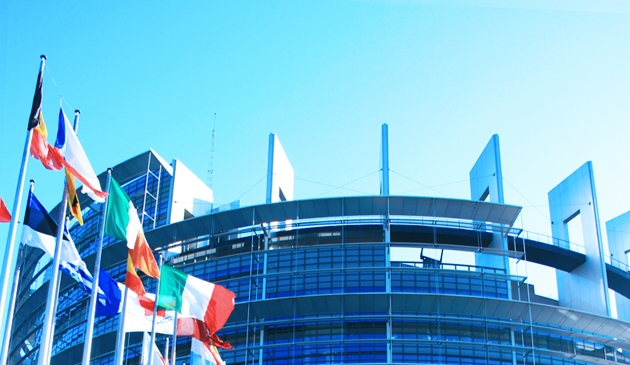
The treaties need radical reform
Inter-governmental conferences (IGCs) are insufferably tedious and complex affairs. Each drawn-out negotiation helps to reinforce the popular impression that the EU is irrelevant to ordinary peoples' lives. And the results of each treaty change have to be agreed unanimously and then ratified in every member-state through a parliamentary vote or referendum, a process which becomes harder as the EU enlarges.
And yet the EU is about to embark on its fourth major IGC in 15 years. The purposes are laudable: to prepare the institutions for the arrival of up to a dozen new members, and to improve the efficiency of the institutions, thereby - it is to be hoped - enhancing their legitimacy. Unfortunately, however, the national governments seem likely to postpone fundamental institutional reforms, which they recognise to be necessary, until yet another IGC.
The governments do plan to tackle the issues left unresolved at the Amsterdam summit of 1997. That means curbing the number of commissioners, so that each country has just one; reweighting votes in the Council of Ministers, to reduce the under-representation of large countries; and extending the use of qualified majority voting (QMV). A case can be made for abandoning unanimity not only on R&D and regional aid, but also - for the sake of the single market - on corporate tax bases, though not on tax rates; on asylum, visas and border controls - lest a government led by Jörg Haidar tried to veto a sensible asylum policy; and on trade policy for services and intellectual property, so that all trade matters are subject to QMV.
Another desirable change which may get through would be to give the Commission president the right to initiate the removal of under-performing or corrupt commissioners. And the current efforts to give the EU a defence capability will require treaty amendment.
Some countries will want to reopen discussions on "flexibility". The Amsterdam treaty allows a group of member-states to move ahead in a policy area, using EU institutions, so long as various conditions are met (including no damage to the single market and Commission approval). But Britain insisted that any government could veto such "variable geometry". There is a strong case for removing that veto. An EU of 25 to 30 members will need more flexible structures, so that, for example, one group could run more integrated defence policies, despite the objections of neutral countries; or another group could work together to raise their environmental standards, without being held back by East European members; or the members of Euroland could co-ordinate fiscal policy more closely.
The Dehaene Committee's recent report included the excellent idea that the treaties should be rewritten and split into two. The first half, designed to be comprehensible to lay people, would describe the EU's objectives, fundamental principles and institutions. It could not be altered without inter-governmental agreement and ratification by each country. The second half, covering the EU's policies and programmes could be modified by inter-governmental agreement alone.
A constitution-like "part one" could help to demystify the EU. And the easier-to-amend "part two" would help to get round the difficulty of ratifying treaty changes in an EU of 25 or 30 members. Many diplomats and lawyers claim that such a split would be enormously difficult to manage, and that it could not be done in time for the IGC of 2000. Perhaps. But in any case a group of experts should start work on the redrafting and if the outcome is not ready for this IGC, it could be tacked on to the next treaty amendment.
It is probable that the IGC which is due to conclude in Paris in December 2000 will - regrettably - lack the courage to reform the presidency. The rotation of the presidency from one member to another every six months damages the EU's diplomacy: neither America's Secretary of State, nor its Treasury Secretary, will deal seriously with a minister from a small country.
The recent appointment of Javier Solana as High Representative for foreign policy shows that the role of the presidency has begun to decline. The presidency should continue to run most "first pillar" business but give up its diplomatic role to the High Representative, who should chair meetings of foreign ministers, and to the embryonic foreign ministry that is emerging within the Council of Ministers secretariat. In a similar manner, a "Mr Euroland" should represent the euro countries to the rest of the world, for example in talks on financial crises or exchange rates. He or she would also chair the Euro-11 committee.
The Paris summit should tackle such big issues but is unlikely to do so. Unfortunately, we shall probably need many more IGCs to create institutions which are effective and thus acceptable to Europe's citizens.
